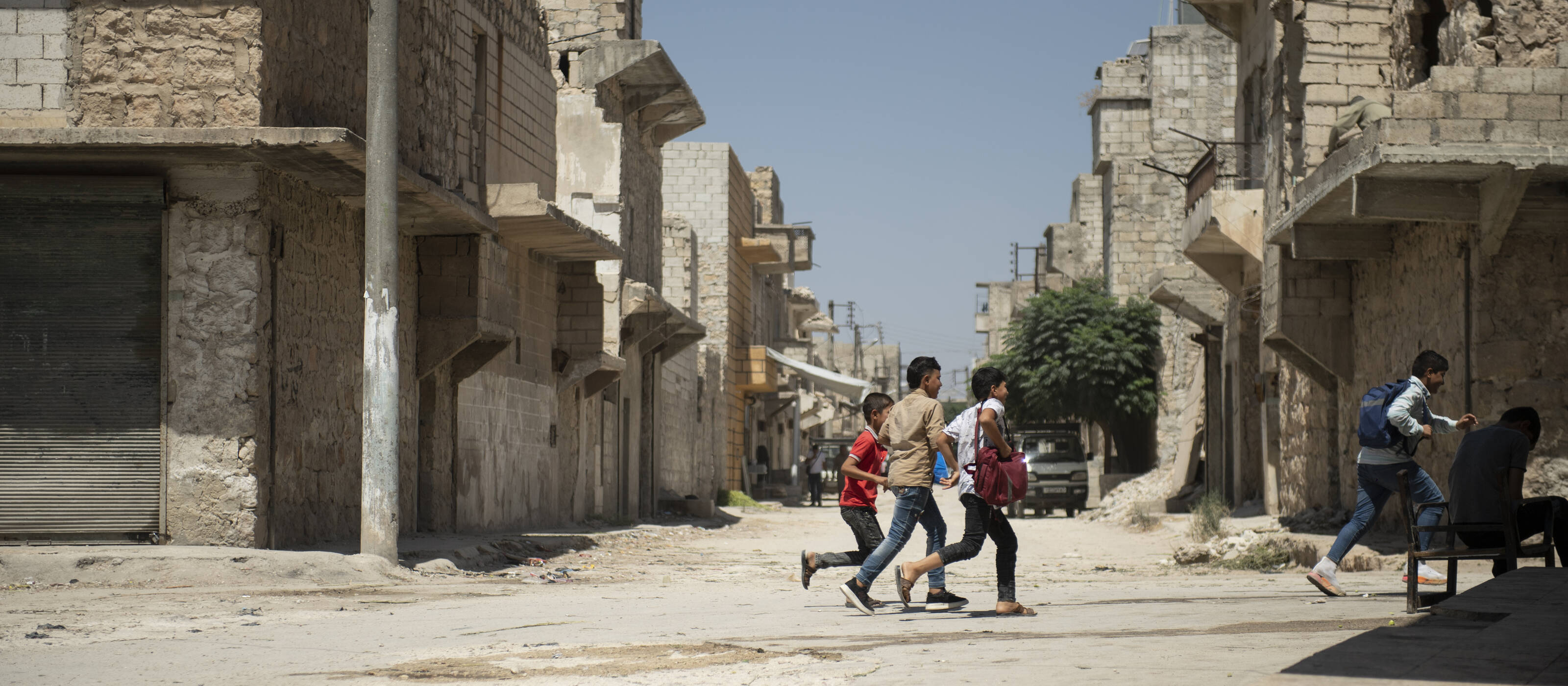

The forgotten crisis in Syria
The civil war has been raging in Syria for more than thirteen years. Two new reports from the World Bank document the ongoing negative impact on the local population. Local Caritas Switzerland staff have been pointing this out for some time: Humanitarian supplies for the civilian population is catastrophic. The international community must provide more financial aid.
In view of the brutal wars in Gaza, Sudan and Ukraine, it is often forgotten that armed conflicts and armed clashes are also raging in other countries. The people of Syria have been affected by civil war for more than a decade. The conflict is considered one of the deadliest of this century: experts estimate that more than 407'000 people were killed between 2011 and 2021 as a result of the military conflict. Although the intensity of the fighting has decreased in recent years, the conflict continues to this day.
The economy is in ruins. More than 90 percent of Syrians live in poverty. An estimated 2 million people are affected by extreme poverty. The population urgently needs more support.
More than six million Syrians have fled abroad as a result of the civil war, most of them to neighboring countries. In addition, a much larger number of people have been displaced within Syria. In addition to the civil war, the country was also hit by a devastating earthquake in February 2023, which caused further deaths and even more devastation. Since the outbreak of war in the Gaza Strip, there has also been great concern that other parts of the region could be affected by military conflict.
Bleak prospects by the World Bank
Two recently published World Bank reports show that the situation in Syria has not improved economically in the past year, on the contrary. The World Bank’s biannual monitoring report on the Syrian economy describes how the long-lasting consequences of the war and of external shocks have led to a further dramatic impoverishment of Syrian households in 2023. Unemployment among the population is extremely high due to the desolate economic situation.
At the same time, prices for staple food and other everyday goods have risen massively. Inflation has continued to rise. In a second report, the World Bank summarizes the long-term consequences of more than a decade of civil war on Syrian households. This document also shows the lack of prospects and the widespread poverty that Syrian society is confronted with.
Against hopelessness on the ground
Caritas Switzerland has been providing humanitarian aid in Syria and neighboring Lebanon for more than ten years, working according to the so-called nexus approach. This approach combines humanitarian aid with so-called “early recovery” measures, which aim to achieve a long-term and sustainable improvement in the situation.
The aim of the projects is to improve the living conditions of local people and to help strengthen the resilience of communities affected by conflict. To this end, Caritas Switzerland provides life-saving and life-sustaining aid through cash transfers, education and livelihood security. Although the situation has already been extremely difficult in recent years, our staff on the ground report that people’s situation is deteriorating and hopelessness is spreading.
«In this rapidly changing context, we have to constantly adapt our projects on the ground in order to respond to the needs of the civilian population. The situation is currently extremely difficult.»Martin hiltbrunnerProgram Manager Syria Crisis at Caritas Switzerland
The biggest challenge for Caritas is to improve the situation of the people in the long term and enable them to secure their own livelihood so that they can become independent of humanitarian aid from international organizations.
Financial support from the international community and Switzerland
The current financial commitment of the international community is not enough to strengthen humanitarian aid in Syria and meet the basic needs of the suffering population. At the end of May, another donor conference was held in Brussels for the benefit of Syrian civil society. The participating countries pledged 7.5 billion euros. Humanitarian organizations criticize that these funds are not enough to finance the urgently needed aid. With just over one billion euros, the largest contribution comes from Germany. Switzerland has been less generous, contributing just CHF 60 million, as announced by the Federal Council.
«Wealthy Switzerland must make a more significant contribution to supporting the people affected by the civil war in Syria and neighboring countries.»Angela LindtDevelopment Policy Unit
The extent to which Switzerland will still be able to make substantial contributions to humanitarian aid and long-term development cooperation in crisis-hit countries such as Syria in the coming years is questionable. The financial framework for international cooperation (IC) proposed by the Federal Council for the years 2025 to 2028 is far too tight, as no additional funds are likely to be allocated for aid to Ukraine.
The funds available for countries in Africa, Asia and the Middle East will therefore be smaller. In the parliamentary debate on the IC budget, further cuts are also to be feared. Caritas is committed to ensuring that the federal government’s savings plans do not come at the expense of people in countries such as Syria. The crisis in Syria must not be forgotten.

Angela Lindt
Head of Development and Climate Policy advisory service+41 41 419 23 95alindt@caritas.ch
Further Information
Header image: © Hasan Belal